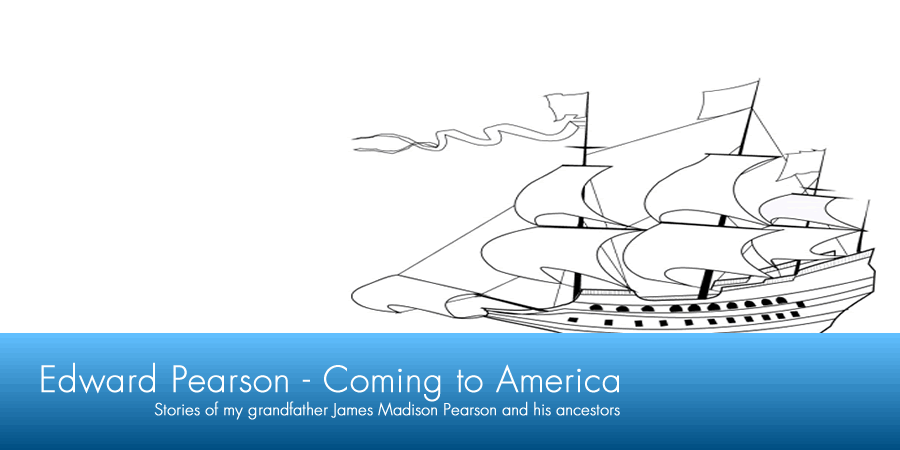Soldiers' memories of war consist of forced marches at night, restless sleep in pup tents too small to keep out the cold drizzle of rain and the noise of falling shells. Mostly, memories are of long stretches of boredom, broken by the sheer terror of battle and haunting fear of death. In the midst of all this, soldiers will take time to think of sweethearts back home.
During the American and French assault on Saint-Mihiel, the 137th Regiment of the 35th Division remained camped outside Nancy in the Forest de Haye.
 |
| American Doughboys |
The assault began September 12th and was a success.
It was then decided that the 35th Division would move by truck and night march to prepare for the last battle of the First World War, the Meuse-Argonne Offensive. In this battle the names of Cheppy, Varennes, Montrebeau Wood, Baulny and Exermont would become forever memorable to those who fought there.
My grandfather Captain James Madison Pearson fought in the upcoming battle as a member of a different unit. His cousin Sergeant Varlourd Pearson was a member of the 137th Infantry Regiment.
His citation for the Distinguished Service Cross reads:
...for extraordinary heroism in action while serving with Company I, 137th Infantry Regiment, 35th Division, A.E.F., near Baulny, France, (north of Charpentry on the road to Apremont) 28 September 1918. Though wounded three times by shrapnel and machine-gun bullets, Sergeant Pearson refused to be evacuated and continued to lead the advance of ; his platoon, remaining in command for several hours till he received a fourth wound which proved fatal.
 |
| Map of the Argonne Forest and the Meuse-Argonne Offensive, 1918 |
What thoughts he had prior to and during the battle, I don't know. But a good account from the 137th Regiment can be found.
An excerpt from Reminiscences of the 137th U. S. Infantry Regiment, compiled by Carl E. Haterius. The words are substantially those of Mr. Haterius, although I have taken some minor liberties.
About September 18th, learning that 35th Division would, not be needed in the drive at Saint-Mihiel, we prepared to move to another front. A few hours later, the regiment left the woods and hiked seven kilometers through the quagmire of the forest over to the Nancy and Toul highway, where a long train of 1100 French motor trucks waited to convey us to another sector.
While loading into these waiting trucks, an amusing incident occurred.
We had not as yet seen evidence of a real honest to goodness American woman. April 25th afforded us our last glimpse of one such. It may sound strange to say we never knew before that moment what one of the fairer sex means to this old world. Often perhaps we had been awkward enough to pass such a remark as,
''Well, I guess we could get along in this old world without women. Vain creatures as a rule, and men must always cater to them." Now, thanking the powers that be, we learned a bitter-sweet lesson – in truth this world would be a dismal place without the presence of those "bright angels."
For weeks, we had come across none but old French peasant folk, and we craved the sight of a real woman. It is strange, we now admit, but it is God’s honest truth. Standing there on that highway awaiting orders to load trucks, we saw an ambulance barreling down the road, and all along the line great cheers rose into the air.
 |
| Ambulance World War I |
Note. Major and Chaplain, Carl E. Haterius served with the 137th Regiment. He was born in 1892 in Pottawatomie County, Kansas and died in 1962 in Eugene, Oregon.He also served in World War II.
As the vehicle came close, we beheld two American Reel Cross nurses seated in front alongside their driver. Everybody made for the road, and as the ''angels" passed, a thunderous greeting arose from the throats of hundreds of doughboys. God’s honest truth, this was the best thing we had seen since coming to France. Again, truth be told, as fast as that ambulance went by, we had hardly even caught a glimpse of the two nurses. But, burning brightly in each man’s eye, was the vision of a raven-haired beauty or the golden locks of some sweetheart back home.
After the ambulance passed, a new and hitherto unknown cry came could be heard, and voicings such as, ''I want to go home," passed down the line. To this day I am inclined to believe those murmurings were as sincere as the tears we shed. We did want to go home, but not right then and there.
